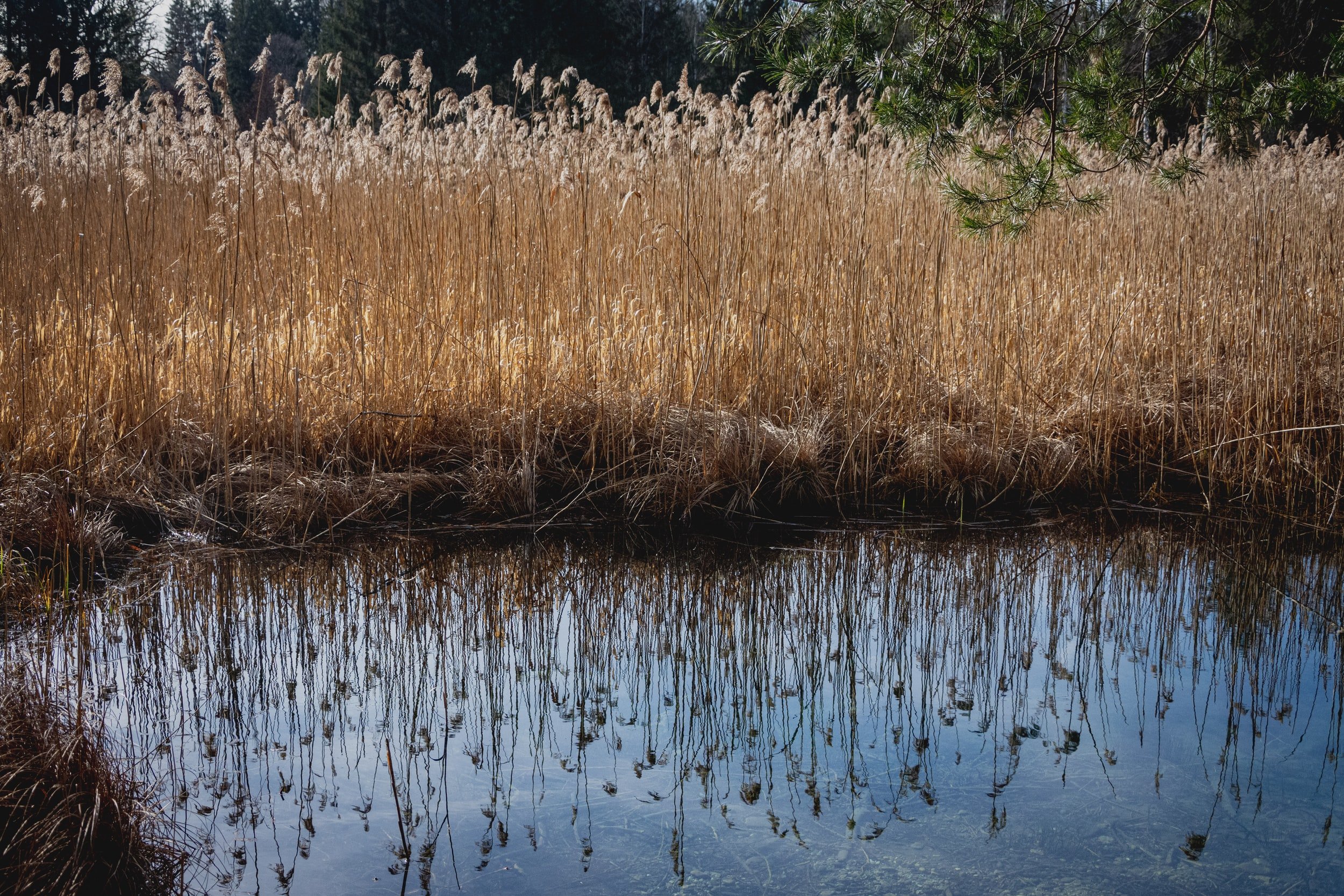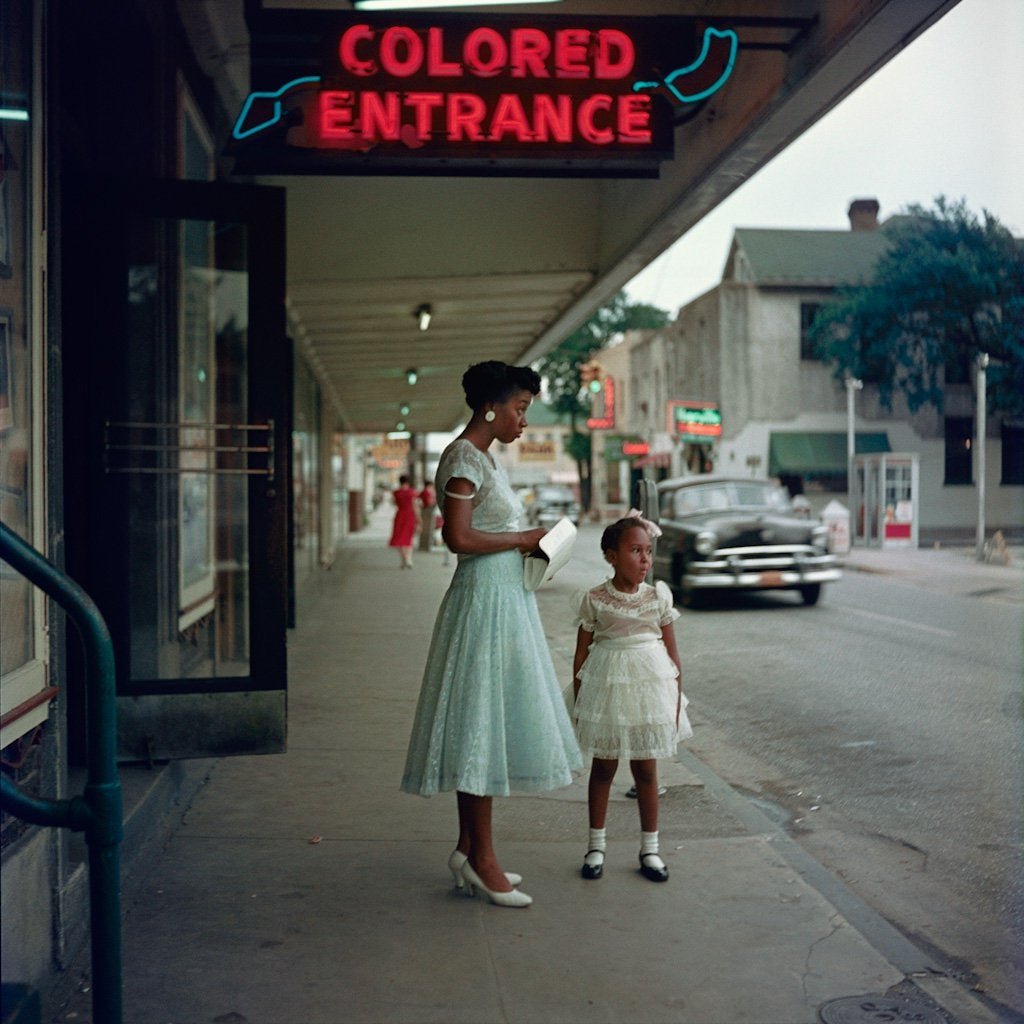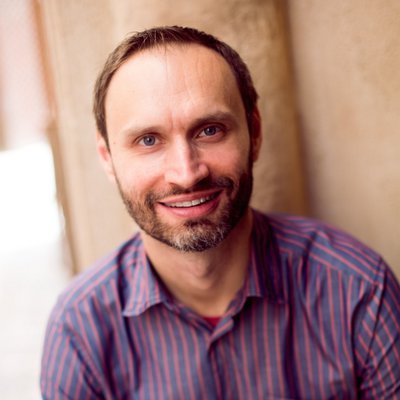Pastors Pursuing Diversity: Interview with Jeff Noble
Over the next few months, I will be conducting interviews with pastors who are pursuing diversity in their congregations. You can read more about the series in the introduction.
The questions are geared to help pastors and congregations in the pursuit of diversity in the church and all of life. All of the views, opinions, and suggestions are that of the interviewee. The goal of the series is to provide a resource from a variety of pastors, and therefore opinions may also vary.
(Due to length, please feel free to print interviews for future reading and referencing)
______________________________________
Pastor Jeff Noble is the Senior Pastor of New Life Community Church, an Evangelical Free Church in Aurora, CO. He started at his congregation as an intern in 1987 before becoming a pastor in 1991.
Have you always had a desire for a multi-ethnic church?
Not at first, as our community was almost entirely white … it didn’t seem relevant.
If not, when did it change and why?
In the late 1980’s, some notable ethnic changes began taking place in our city of Aurora. Then, like a snowball gaining momentum down a hill, these changes became increasingly dramatic through the 1990’s and into the 2000’s. By the 2010 census, the city of Aurora had become the first minority-majority major city in Colorado, with only 47% of the population being white. As I watched these significant changes taking place within our city, I initially felt threatened by the increasing number of people who were different than me in language, dress, culture, etc. But, as I prayed about the ministry of our church and searched the Scriptures, God kept pointing me to passages like the Matthew 28:19 (“Go and make disciples of ALL the nations”) and Mark 11:17 (“My house shall be called a house of prayer for ALL nations.”) How could our church not reach out to these other nations when God was bringing them right into our own city? I was also greatly moved by Christ’s prayer in the Garden the night before He died upon the cross in John 17:20-23. He agonized in prayer that those who would come to believe through the disciple’s message (that’s us!) would all be one, just as He and the Father were one, in order that the world may know that God had sent His Son into the world. One of the most powerful apologetics for the truth of Christianity will be our love for one another. Yet sadly, 11:00 AM on Sunday morning remains the most segregated hour in America today. This must not be!
In addition to God speaking to me through the Scriptures, my passion for multi-ethnic ministry was also fueled by another key factor as well … becoming friends with people from other ethnicities. About ten years ago, three very special men entered my life. Two of them were a Korean pastor by the name of Myung Kim and a Hispanic pastor by the name of Erik Valenzuela. Initially, they came looking to find a facility in which their churches could meet. Over time, though, our relationship transitioned from that of “landlord-tenant” to “good friends.” Our friendship began with periodic meetings over lunch or dinner to discuss our ministries and pray for one another. How rich these times were and how much we grew in our understanding of one another’s cultures, ministries and faith in Christ. God began to reveal a variety of ways in which we could partner together to reach our city for Christ. It was also about this time that I also met Pastor George Johnson at a conference. He was an African-American pastor ministering in our community with whom I quickly became good friends. I have learned so much from George (and still have so much to learn) about the African-American experience in both America and the church. It has also been our church’s privilege to partner with him and his church (New Direction Community Church) in reaching our city for Christ, especially the part of town where our church used to be located before we moved to our present site in the mid-80’s. New Life loves Pastor George and he has ministered many times at New Life. In all three cases, it started with building a personal friendship. Besides prayer and searching the Scriptures, I am convinced that this is the single greatest key to a multiethnic church. Everything else flows out of building this personal relationship with a brother in Christ who is different from you!
What are the demographics of your congregation?
About 10 years ago, only 1-2% of our congregation were immigrants or of a non-white ethnicity. Today, that figure is closer to 20% of our congregation of 800 people. In addition, we have about 200 people attending our afternoon ethnic-language services as well. We still have a long ways to go to reflect the 53% of our community that is non-white, but we’re making progress.
How have you sought to build diversity within your congregation?
Generally, one thing we have NOT done is to make our main goal to become a diverse church. Instead, we have sought to fulfill Christ’s Great Commission of reaching all nations with the Gospel (Matthew 28:19-20). Since we live in an increasingly-diverse city, a byproduct of reaching all nations will be to become an increasingly-diverse church. Another thing that we have done is to avoid the extremes of either “doing what comes naturally” or “setting quotas.” If we “do what comes naturally,” then we’ll likely just reach those who are “like us.” If we “set quotas,” then we can fall into the trap of reverse discrimination and unnecessarily alienating a lot of people. Our approach has been to be intentional about reaching out to people of all ethnicities and elevating them to leadership positions.
Specifically, one thing we did was to have various immigrants share how they celebrated Christmas in their countries of origin during each Sunday of advent. What a blessing it was to hear about the purity of Christmas in a non-materialistic culture! Another project was to pair up New Life families with immigrant families and have them tell their extraordinary stories. These New Life families then wrote up the immigrant’s stories in a booklet entitled “Our Stories” that we published for the congregation to read. Not only did the immigrant families sense that someone truly cared about them, but the people of New Life were amazed by their great stories of courage and faith. These are just a couple of the things we have done to break down the barriers between people and build diversity within our congregation. From our experience, the possibilities are almost limitless!
How have you sought to cast this vision to your members?
One challenge to casting this vision to our church has been the fact that the vision hasn’t been clear in my own mind. God has revealed it to me step by step … and then I’ve shared it with the congregation as I’ve received it from Him. Another challenge has been that there are few examples of long-time mono-ethnic churches that have successfully transitioned into genuinely multi-ethnic churches. Hence, there aren’t a lot of modern-day templates to look to as examples. One example in Scripture that has been especially impacting in our big city, multi-ethnic context, though, is that of the church at Antioch in Acts 11 and 13. Our people have a great respect for God’s Word so holding up Antioch’s example for New Life in sermons and teachings has been significant in casting this vision. A second practical way we’ve cast the vision has been by reading Mark Deymaz’s excellent book, “The Healthy Multi-Ethnic Church,” and discussing it as a leadership team. He has much wisdom to offer and experiences to share! Another key has been to celebrate the events and ministries that we have done together. One member of our congregation put together a powerful video of our “Taste of the Nations” community outreach that was especially powerful. As they say, a picture is worth a thousand words.
Do you have a diverse staff as well?
Having been a mono-ethnic church for over five decades, and desiring to bring as many people along on this multi-ethnic journey as possible, our change has been gradual. At present, our Associate Pastor Ken Joo is Korean and he’s a member of both our Preaching and Directional Teams. In addition, one member of our Worship Staff is Ugandan (Andrew Kizito) and another is Vietnamese (Mikey Nguyen). We also have increasing diversity on both our Directional Team and Elder Board. In addition, we are also intentional in having people of all ethnicities praying up front, serving communion, ushering, greeting, singing, etc. We still have a long ways to go, but thankfully, we’re headed in the right direction.
What do you see as the benefit of having a diverse church?
I can’t even begin to list all the benefits that come from having an increasingly-diverse church, but I’ll try …
— You’ll be obedient to the Scriptures.
— You’ll demonstrate God’s heart for the nations.
— You’ll be relevant to ALL people within the community … not just those who are “like us.”
— You’ll be good stewards of the building that God has entrusted you.
— You’ll shine as a powerful witness for Christ in an ethnically-divided world.
— You’ll grow in your understanding of God and His kingdom in ways you’ve never imagined.
–You’ll be exposed to a wealth of new ministry ideas that you would have considered.
— You’ll experience a richness of worship and fellowship that is a foretaste of heaven!
I could go on and on … but this at least gives you an idea of some of benefits we’ve experienced.
Tell us a little bit about yourself. What is your testimony? Did you grow up surrounded by diversity or has this been a newer conviction/desire?
I grew up in the heavily-Scandinavian town of Holdrege, NE, home of an annual Swedish Days celebration. Other than having a childhood friend whose dad was a vet and mom was Filipino, I seldom ever saw or met anyone who was non-white. That all changed at age 13, when my father died and my mom later remarried a fine Christian man whose wife had also died. In an instant, I acquired five new siblings … one of whom was a younger stepsister adopted from Korea. She was a delightful and determined young lady who demonstrated to me firsthand that people from other countries and cultures are really no different than us … especially if given the same opportunities. As my siblings and I grew up and went on to raise our own families, several more adoptees were brought into the family from both within the US and outside it. Over time, I think my extended family has truly become “colorblind” with respect to ethnicity.
Perhaps you have only just begun this pursuit. Where ever you are in the journey, have you had any fears? Have you struggled with doubt that it is possible?
One of the biggest fears we can have in this journey is the language barrier. I wish I could say I have this great gift for learning languages, but to be honest, I’m absolutely terrible at it. Other than knowing a little bit of Spanish and a few phrases in other languages, I only know English (and some would even say that’s debatableJ). Thankfully, I’ve found that most immigrants know a whole lot more English than I’ll ever know of their languages and you can usually communicate effectively enough to get by. Another fear I’ve had is that I would make a significant cultural gaffe that would cause great harm. While I have made several of those over the years, thankfully the damage has been limited, as they’ve known that I’ve done them out of ignorance rather than malice. A good sense of humor on both sides can be very helpful!
Do you do anything unique with your service(s)?
As we’ve been able to diversify both our staff and leadership team, we regularly have leaders of different ethnicities preaching, leading worship, giving testimony, praying, serving communion, ushering, greeting, etc. We’ve also put up flags on the walls that represent all the countries from which our people have come to the US (we’re up to 40 flags now!) We’ve also regularly promoted missions projects where we have sought to send teams and resources back to the countries of origin from which our immigrants have come. (This is a very big part of our vision!) Lately, we’ve been intentionally seeking to diversify both the languages on the screen and the styles of music in the worship we are doing.
If you could give any advice to a pastor who desires to pursue diversity within his congregation, what would you say to him?
Besides intensely praying and seeking the Scriptures, the single biggest piece of advice I would give to a pastor is to build friendships with those of a different ethnicity. Virtually everything I have learned and done in multi-ethnic ministry has flowed out of my growing friendships with men like Erik Valenzuela, Myung Kim, George Johnson, Nelson Lopez, Ken Joo, Gregoire Luabala, Andrew Kizito and several others. I count my friendships with these dear brothers in Christ as some of the greatest treasures in my life!
If you were asked to speak to a congregation who was about to begin a series of initiatives in hopes of building a more diverse congregation what might you say to them?
The first thing I would say is to not “begin a series of initiatives” … but instead to pray, seek God’s face, search His Scriptures and begin building friendships with brothers from a different ethnicity. Then, prayerfully strategize together with these ethnic brothers whatever “initiatives” you might pursue. It has been my experience that the best initiatives we have done have come from their minds and not mine! I would also highly encourage them to do some reading and talk to pastors who have gone down this road ahead of them. There are many pitfalls that can be avoided and lessons that can be learned from their wisdom and experience. That being said, it is vital that you do what God is saying specifically to you and your community and not try to replicate what is working in another city and context.
How do you think that the Great Commission can motivate a pursuit of diversity?
It seems that different pastors and ministries can strive for multi-ethnicity from a variety of angles. For some, they are highly motivated by racial reconciliation, which is a very worthy goal and can be especially appropriate in our racially-charged nation. In the case of New Life, we were motivated to become a multi-ethnic church almost entirely on the basis of the Great Commission. In Matthew 28:19-20, Jesus commands us to “make disciples of all nations.” It is very significant to us that the Greek word for “nations” is where we get our English word “ethnicity.” God desires us to make disciples of all “ethnicities,” and since there are a multitude of ethnic people moving into our city every year, how can we NOT reach out to them with the Gospel of Christ? For New Life, our focus has not been to become a multi-ethnic church, but rather, to reach all the nations that are moving into our city for Christ. (We believe that so much that we put it on our church sign – i.e. “A House of Prayer for All Nations”). The more effective we become at reaching all nations … the more diverse our church will become.
How might we encourage members to build diversity within their homes?
One vital way, as I noted earlier from my family background, is to adopt children into your homes from a different nation or ethnicity. As James 1:27 notes, God has a great heart for orphans and widows. Another practice that we have found invaluable is to invite people from other ethnicities into our homes … and to reciprocate by visiting in their homes. There is such a deep level of trust of friendship that can grow between people who share a meal together. We have also found great value in watching movies with multi-ethnic themes, visiting places with multi-ethnic significance, attending cultural events from different ethnic backgrounds, going on mission trips to other countries, listening to music from other backgrounds, etc.
Any websites or other tools you might suggest?
Check out the “Ethnic Ministries” link on our church website at www.nlccaurora.org — It lists an overview of New Life’s ethnic ministries and has videos from our last two “Taste of the Nations” events.
Our EFCA District Church Planting Director (Greg Pugh) and I have also developed an online tool for pastors looking to either become more multi-ethnic or empower a multi-ethnic church in their facility. It presents an interactive step-by-step process for them to walk through.
I’ve also done presentations at our District and National EFCA Conferences plus a local Ethnic Ministry Conference in the Denver area. Hopefully, our story of God’s working at New Life will encourage these pastors to believe that a long-time mono-ethnic church can really transition into becoming multiethnic and to give them some practical ideas of how that can take place.
RELATED CONTENT











Guest post by Isaac Adams
I thank God for folks who speak biblically about race. Whether it’s a black mom teaching her children that they also bear God’s image, or a white sister writing a prophetic blog post—there are many brothers and sisters take up this worthwhile battle…